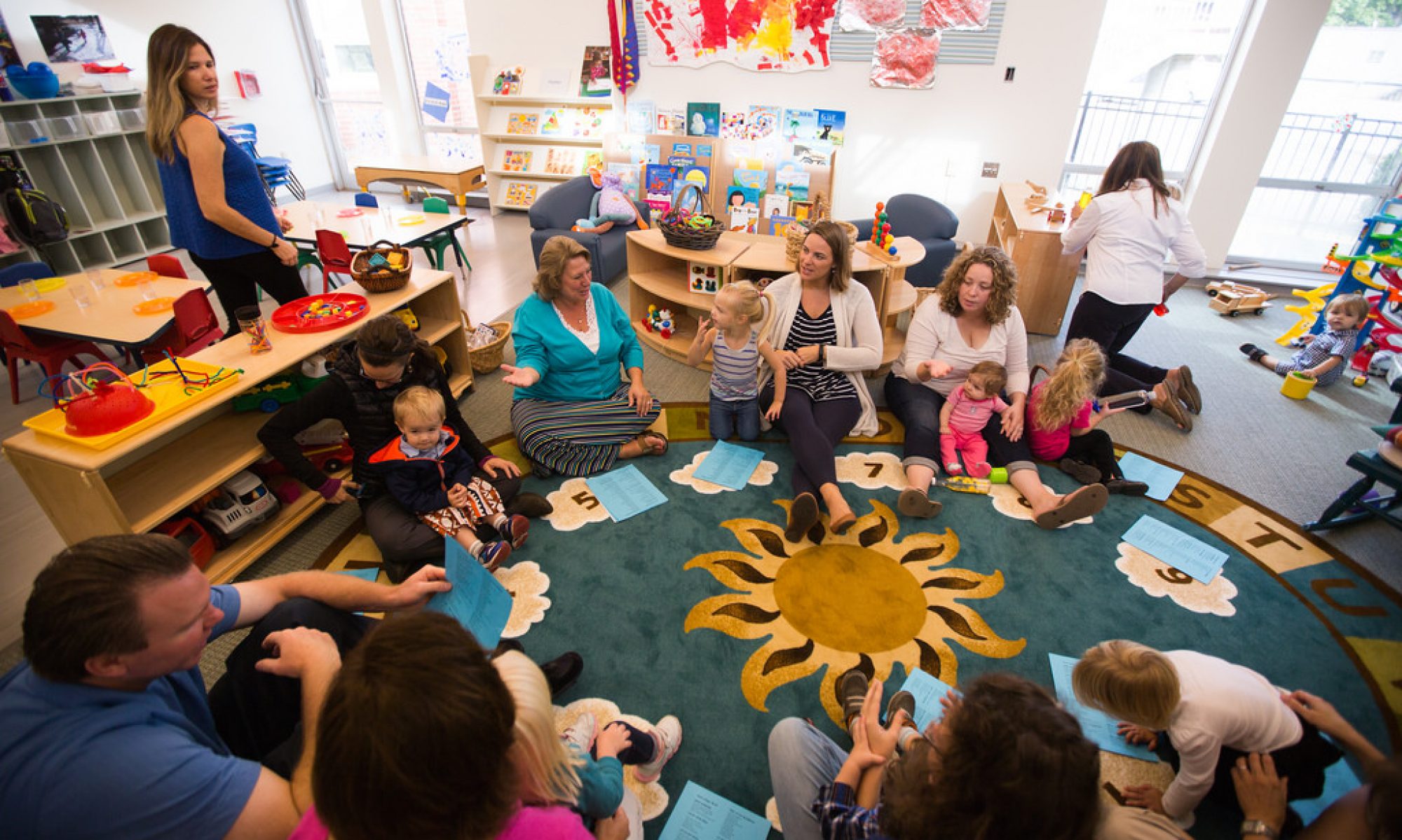By Dorothy Halverson
As increasing emphasis is placed on the importance of a child’s first years and the significant role that parents play as educators, one side effect may be to make conscientious parents feel inadequate with regard to their parenting skills. The work that we do as parents and educators with the youngest children builds the foundation of character. We may frequently ask ourselves, “Are we doing everything possible to help develop the full potential of our children’s character, a character that will be strong enough to hold up in every situation and environment?
One invaluable tool, or building block we use is discipline—not punishment that makes a child suffer without helping him learn, but teaching that leads to self-discipline, through which he can control himself in every situation. We must start with ourselves, since we are models for our children. Can we control our feelings and remain calm when we take a corrective step? Are we always consistent so a child knows what to expect? Is the home atmosphere orderly and harmonious? We want to help our children understand that they are representatives of Life, Truth, and Love—and help them learn to correct and control themselves. For example: What should we do if we take a small child to the grocery store and he continues to whine and beg for a treat? Do we give in and allow a treat so he will stop whining? Mrs. Morgan states on page 23 of Education at The Principia, “There is no greater unkindness that we can show our young people than that which arises from an intense desire to please them even at the sacrifice of their character building.” We must be careful never to reward whining.
Another way of helping a child to gain self-discipline is to have the child practice a right procedure. I had observed on several occasions a child continually bump his tricycle into others as he rode around the playground. He also took his feet off the pedals, which prevented him from controlling it. I had reminded the child that the pedals were his brakes and that he needed to keep his feet on the pedals or he would be asked to park the tricycle. Several times he lost the privilege of riding, since he continued to ram into others. Realizing I needed to approach the problem differently, I suggested that the child practice driving the tricycle safely in an isolated area on the playground. That day, anytime he chose to ride the tricycle, I had him practice in the isolated area where he could not disturb others. He could see his friends happily riding trikes and so desired to be with them. I let him know he was welcome to join them when he was able to ride without bumping others. He decided it was worth his while to make a right choice and control his own actions.
Obedience is another necessary tool in building character. There should be uniform methods and rules in the home to give the child security. The adults should uphold each other’s directions, even though this is not always easy to do. The child will trust our guidance if we are consistent in the requests we make of him. When we give a direction, we should expect an obedient response. And we should pay attention to our own actions. Do we give a direction two or three times? If so, why should the child respond the first time?
Expecting the child to respond to our requests is essential. When we are expecting right behavior and obedience, the child learns that obedience brings joy and happiness. Acknowledging his immediate response will also let him know he is expressing obedience.
Respect is the cement for the building. Without it, the character-building bricks will not hold together. Not only does the child need to respect adults, but we also need to respect the child. We need to respect his individuality, interests, and needs.
Unselfishness, consideration for others, and thoughtfulness, are surely qualities we want in our building. A parent once said to me, “I love my child so much that there is no sacrifice I won’t make for her happiness. My husband and I both put her first in our plans, yet she seems to make more demands. Nothing we do seems to make her completely happy.” These parents didn’t realize that being loving parents doesn’t mean you need to sacrifice everything for your children. Mrs. Morgan states, “Let the children feel their responsibility in making home the dearest spot on earth. Do not be such unselfish parents that you make selfish children” (Education at The Principia, p. 24). This child didn’t have to do any giving. In all her relationships, she was motivated by selfishness because she had no training along right lines.
As architects of this character building, we must look ahead in planning the blueprint to see young men and women who will take responsibility, be dependable, and possess the qualities needed to be effective citizens—“who will be called upon because of their nobility of character” (Education at The Principia, p. 15). The starting point for this kind of building starts early. When a baby can hold a spoon, he becomes responsible for feeding himself. He discovers he can take off his clothes, then later becomes responsible for dressing himself. As new skills are acquired, more responsibility can be taken and dependability develops. Cooperation also results from participation in home activities.
Respect, unselfishness, responsibility, and cooperation all lead to satisfying companionship in the family environment. Character-building isn’t the easiest work to do, and parents won’t see the full results of their labor until years later. It takes much patience and prayerful work. As we accept the responsibility of building character, right attitudes will be expressed by our children and they will help make the world a better place.

